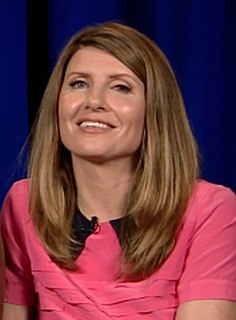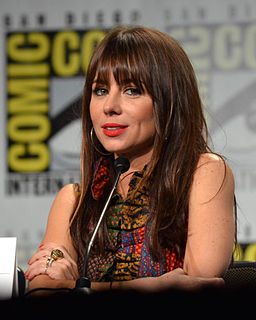A Quote by Neal Brennan
The victory of the show is in the writing. Coming up with sketches and stand-up bits. The rest is just hitting buttons on a machine more or less.
Related Quotes
In the stand-up comedy top, there's room for everyone - if you're good, there's room for everyone. You'll put on your own show - no one casts you. You cast your own show as a stand-up comedian. When you get good at stand-up comedy you book a theater and if people show up, people show up. If people don't show up, people don't show up. You don't have a director or a casting agent or anybody saying if you're good enough - the audience will decide.
The hardest bits of my book to read were the easiest bits to write because they were the most immediate. Probably because I had never stopped thinking about them on some level. Those bits I was just channelling and those were the most exciting writing days. The bits I found harder were the bits that happen in between, you know, the rest of living. There were whole years, whole houses, that I just got rid of.
In the mid-1970s, there was this huge boom of stand-up comedy throughout North America. I went to see a show at a club called Yuk-Yuks, in Toronto, and I was just fascinated. I ended up coming back for amateur hour on a Monday at midnight and got up there without any thought as to what might come of it.
I knew I wanted to be in comedy but the path of least resistance was doing stand-up in folk music clubs where I could get on stage. I guess you could get up no matter how bad you were and you didn't have to audition. You just got up. Everything else required an audition and if you auditioned for a TV show, you would stand in line with a hundred other people. But at the clubs, it was okay just to get up, so that's why I started in stand-up.


































